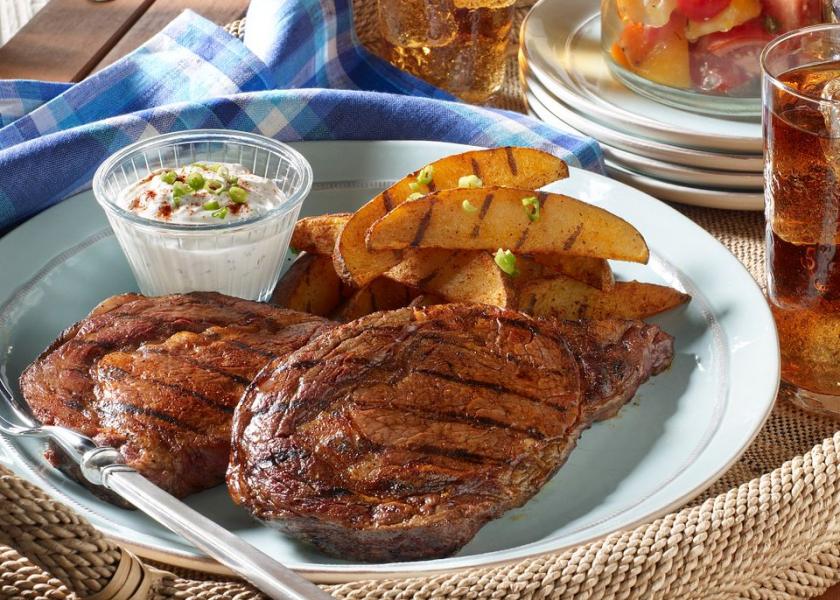Raising the Next Generation of Beef Advocates

As the Beef Checkoff celebrates its 35th anniversary, the National Cattlemen’s Beef Association (NCBA), a contractor to the Beef Checkoff, is shining a light on the successful promotion and research programs that drive the demand for beef. In this first installment, we look forward to the future by developing the next generation of beef advocates through the Masters of Beef Advocacy (MBA) program.
Unlike 150 years ago when most families lived an agrarian lifestyle, today fewer than two percent of the U.S. population resides on a farm or ranch. These changing demographics have resulted in a large gap between where food is produced and where it is consumed. Now more than ever, it is vital for producers, consumers, and all engaged members of the agriculture community to share their stories, instead of relying on someone else to do it for them.
The Checkoff-funded MBA program was developed in 2009 to bridge the widening chasm between producers and consumers and to help farmers and ranchers share their stories and advocate knowledgeably for the beef industry. It is a free, self-guided online course that provides farmers, ranchers, service providers, students, consumers, and all members of the beef community the tools and resources to answer questions about beef and raising cattle.
“Every producer has a story to tell, which is the foundation of becoming a powerful voice for beef,” said NCBA Federation Division Chair Clay Burtrum. “Sharing my ranch experiences and how I raise animals is vital to connecting producers and consumers. We promote a lifestyle that raises a wholesome, nutritious product that is also sustainable as we constantly improve our methods of preserving natural resources and caring for our animals.”
The online lessons address sustainability, beef nutrition, animal welfare and beef safety while taking participants through the beef lifecycle, from pasture to plate. The course also offers historical context on the evolution of the U.S. beef industry from the time the first cattle were brought to North America to today. Upon completion of five interactive online lessons, graduates are equipped with the communication skills and information to be confident in sharing beef stories on social media and in communities to help others better understand how cattle are raised and how beef is part of healthy sustainable diets.
Graduates gain access to a variety of continuing education resources ranging from online courses that delve deeper into specific topics to in-person training, and more. They are also invited to join the MBA Alumni Facebook group, a virtual community to ask questions and get connected to the latest advocacy resources.
Producers across the United States have been joining the conversation and engaging in critical discussions surrounding the beef community, backing their beliefs and systems of thought through social media, writing editorial pieces, posting live videos, and continuing their education through programs such as MBA. With more than 19,000 graduates of the program, MBA continually adapts to meet the changing needs of both producers and consumers.
“MBA is always making enhancements to improve the educational experience and include topics that are top-of-mind for both producers and consumers,” Burtrum said. “It will continue to be a cornerstone program educating future generations of beef advocates.”
For more information and to apply to participate in the MBA program, visit www.MastersofBeefAdvocacy.com.







